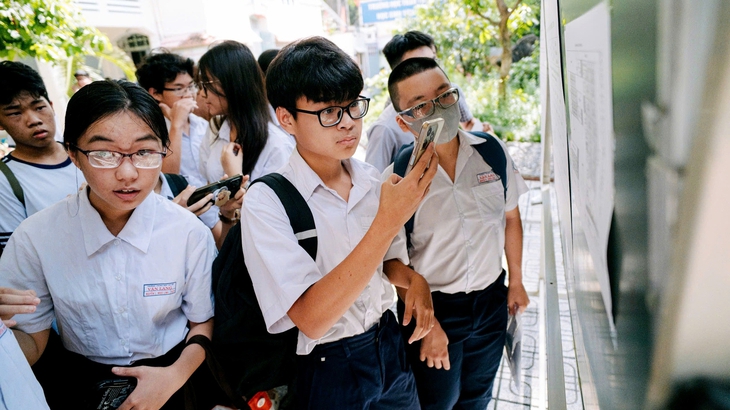
Ho Chi Minh City plans to ban students from using cell phones even during recess - Photo: THANH HIEP
Specifically, assign research to advise on a proposed plan to not allow students to use mobile phones during recess and during educational activities at school. Only in cases where subject teachers allow students to perform tasks during class time are they allowed to use mobile phones.
At the same time, Mr. Hieu also requested the Student Affairs Department to advise on plans to organize activities during recess to create conditions for students to connect with each other. At the same time, students will also be trained in physical activities. These activities are expected to be implemented in the 2025-2026 school year.
The Ho Chi Minh City Department of Education and Training's plan to ban students from using cell phones, even during recess, has received the approval of most parents and teachers.
Parents' helplessness
"My child made it a condition that I had to buy a smartphone before going to school. All of my classmates have phones, but my child doesn't have one, so his classmates say he's a country bumpkin, a citizen of the Stone Age..." - Ms. Van Thi Ha Mi, a parent whose child is in 8th grade in Ho Chi Minh City, said. Despite explaining and analyzing the harmful effects of smartphones, and promising that she would buy him a phone when he entered 10th grade, Ms. Mi's child still didn't listen. In the end, she was helpless and gave in to her child.
"When my child has his own phone, he becomes a different person. When he comes home, he closes the door and stays in his room with his phone. He is very upset and doesn't want to talk to his parents. My husband and I console each other by telling him to be more comfortable at home. Who would have thought that when he goes to school, he would also hug his phone" - Ms. Mi said.
The reason Ms. Mi discovered the incident was because her family had a Zalo group. "That day, around 10am, I sent a message in the family group saying that this weekend our family would go to visit grandma's. Immediately, my son replied that he couldn't go, he had a movie date with his friends this weekend. I wondered how he could chat with his mother at this hour when he was studying?"
Too worried, Ms. Mi went to see her homeroom teacher. "I was surprised when the homeroom teacher also confided that she was having a headache with the problem of students using phones during class. She said that students were chatting, surfing social networks, playing online games... instead of focusing on the lesson. I continued to see the school principal and asked the school to issue a rule prohibiting students from using phones."
Ironically, the principal was also helpless. Ms. Mi said: "The principal said that five years ago, there were teachers who made a ban. There were parents who agreed and supported it. But there were also parents who reacted. They questioned the school on what rules and regulations the ban was based on. That it was making it difficult for students and their parents because they wanted their children to use phones to contact each other, to book technology cars to go home..."
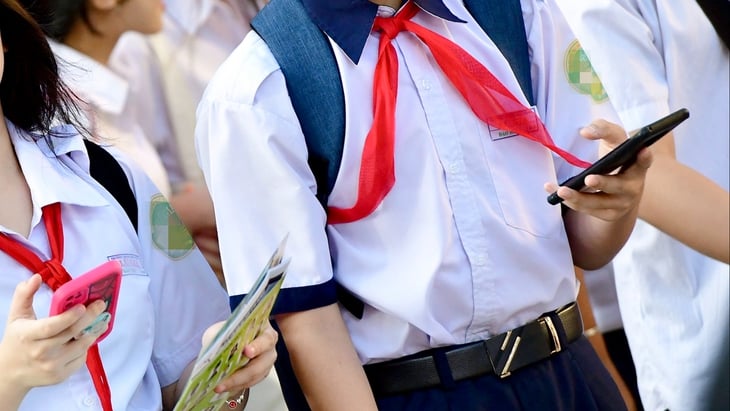
In the 2024-2025 school year, some middle and high schools in Ho Chi Minh City have issued regulations prohibiting students from using cell phones in school - Photo: DUYEN PHAN
Bad effects of cell phones
"Our school's student affairs department is very tired of a series of complicated incidents, the main cause of which is smartphones," said the principal of a private high school in Ho Chi Minh City.
The principal said: "Nowadays, many families are well-off and pamper their children. They are willing to buy their children phones that cost tens of millions of dong. Therefore, when a student reports a lost phone, the whole school, from the board of directors to the homeroom teacher, subject teachers, and supervisors, must investigate. Not to mention the students filming clips and taking photos to disparage each other and posting them on social networks. Next, they gossip, expose each other, and make appointments outside the school to resolve the matter."
Ms. Hoang Quyen, an English teacher in Phu Thanh ward, Ho Chi Minh City, was upset: "Letting students use cell phones in school is very harmful. The class size is large, and I personally see students hunched over the books propped up in front of them - thinking they are concentrating on their homework.
When I got there, I discovered that he was engrossed in playing online games. Another more dangerous problem is when teachers give students homework - instead of thinking and applying the knowledge they have learned to solve the problem, many students take out their phones and ask ChatGPT to do it for them.
Mr. Nguyen Van Phuc, principal of Pham Ngu Lao Secondary and High School, Ho Chi Minh City, also admitted: "Students using cell phones in school has caused many consequences.
Firstly, students are addicted to their phones, social networks, and online games. They still secretly play during class time. Secondly, sometimes, due to small conflicts, students cannot control their emotions and immediately write a short status on social networks.
So netizens flooded in with comments, adding fuel to the fire, making the incident more complicated and serious... The consequences of the incident are very unpredictable. Fourth, when students have smartphones, they rarely communicate and interact with each other. During recess, when each student has a phone, there is no need to talk to each other anymore."
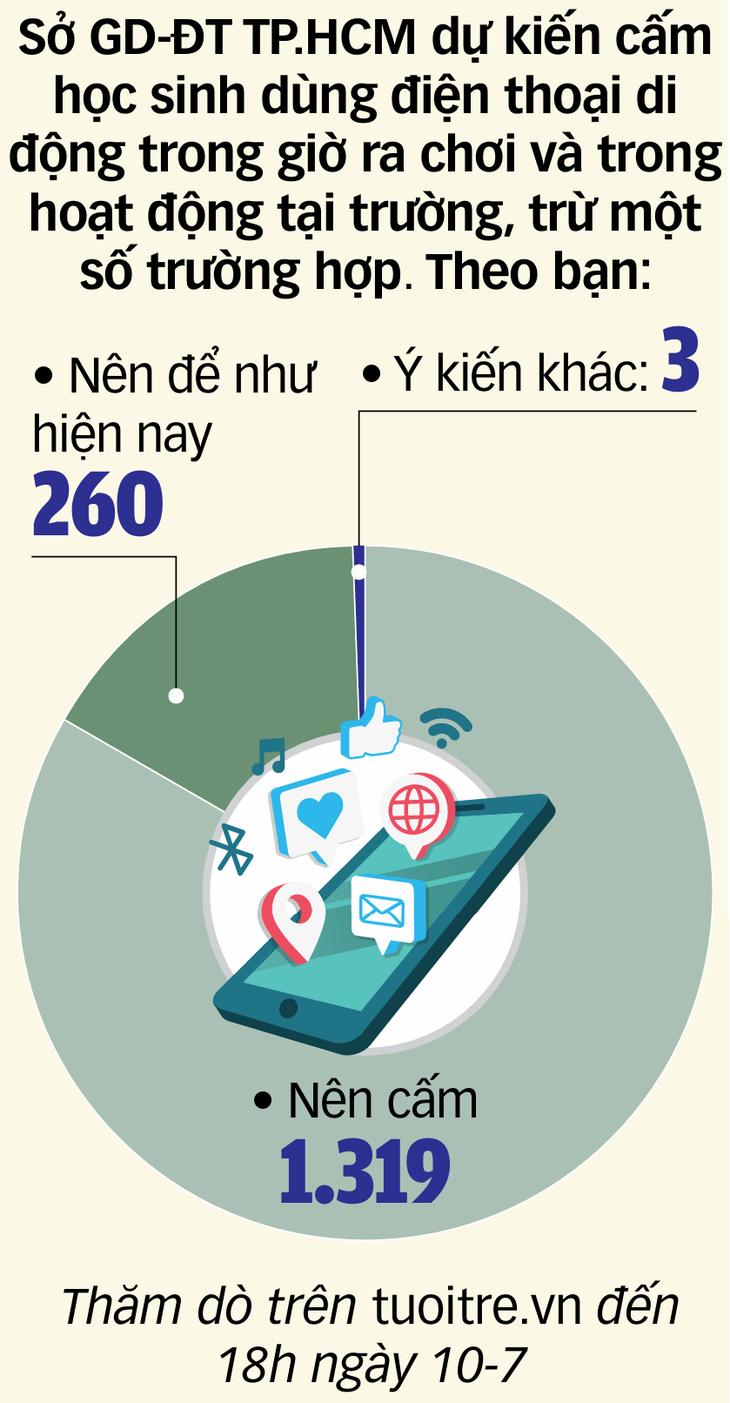
Graphics: TUAN ANH
The benefits of banning phones
For the above reasons, Pham Ngu Lao Secondary and High School has issued a regulation prohibiting students from using cell phones for many years now. "This regulation is agreed upon by all parents. That is, students are allowed to bring their cell phones to school but must turn them off and hand them over to the homeroom teacher.
"Students who bring their phones to school without handing them in to the teacher will have their phones held for a week if discovered the first time, a month for the second time, and a whole semester for the third time. Only during specialized lessons, multiple-choice tests, etc., if the subject teacher requests it and has given notice the day before, will students be allowed to use their phones for studying purposes," Mr. Phuc informed.
Similarly, Truong Chinh High School, Ho Chi Minh City has also banned students from using cell phones for many years. "Students are not allowed to use cell phones during recess. Instead, the school organizes music clubs, modern dance clubs, and organizes shuttlecock kicking, badminton, volleyball, basketball, etc. for students.
Students who do not want to participate can sit and review their lessons or chat with their friends. The implementation of this regulation is widely supported by parents. After a period of implementation, students will have better habits and compliance.
Especially during recess, the children go to the yard more, increasing physical activity and sports . After a while, the school noticed that the children interacted better with friends and teachers, they focused on studying so their learning results were also better" - Mr. Trinh Duy Trong, principal, shared.
The Gifted High School (Ho Chi Minh City National University) also decided not to allow students to use cell phones. Dr. Tran Nam Dung, vice principal, said: "Allowing students to use cell phones during class can easily lead to them being distracted and doing their own things. Teachers will also feel uncomfortable when they see students using their cell phones for personal purposes while they are teaching.
Therefore, the school requires students at both campuses not to use their phones during class. When entering the classroom, all students must leave their phones in a glass cabinet and lock it. Only when requested by the subject teacher, students are allowed to take out their phones for study purposes."
Get used to not using the phone
Talking to Tuoi Tre, HKN, a student at Truong Chinh High School, confided: "In the past, I was quite introverted and afraid to communicate with friends, so during recess I kept my eyes glued to my phone. This was an excuse to not have to look up, so no one would talk to me.
At first, when I was banned, I felt something was missing without my phone by my side. But when my friends pulled me out to the field and joined the shuttlecock club, I felt so happy. Thanks to the school banning the use of phones, I have many friends."
Meanwhile, P., a student at Le Van Tam Secondary School in Binh Thanh Ward, said: "When the school banned the use of cell phones, I was very sad. I thought the coming months would be very boring.
But the reality is the opposite, I talk, get to know, open up to friends. And people even compliment me on my funny conversations. Now I'm more active, talkative, and more confident. Up to now, I've gotten used to not bringing my phone to school. Simply because at school there are more fun real-life activities. Things on the phone are sometimes just virtual."
Perhaps this is also the reason why the speech of Associate Professor Dr. Vu Hai Quan - Director of Ho Chi Minh City National University - at the opening ceremony of the new school year 2024 - 2025 of the Gifted High School, has caused a storm on the internet. The speech includes a paragraph: "Using the phone to search for information for studying is good. But do not let the phone silently turn students into "prisoners" of social networks and games. This invisible prison can bury the youth, ambitions and aspirations of students".
Need more alternative fun activities
Mr. Hoang Hoai Nam (Vung Tau Ward, Ho Chi Minh City) supports the education sector's ban on students using cell phones. Mr. Nam also suggests that banning should be avoided as a simple form of repression. If only phones are confiscated and there is no alternative, students will easily become dissatisfied, secretly resist or secretly violate the law.
Therefore, it is important to have alternative forms of entertainment. For example, during recess, there must be attractive alternative activities, sports, group games, relaxation spaces, club activities... "At the same time, teachers must accompany and set an example. Don't let students be banned while teachers are glued to their phones," said Mr. Nam.
According to Mr. Nam, banning students from using cell phones requires listening to the opinions of students and parents, organizing to collect opinions, and should not be imposed unilaterally. And the ban should only be within the scope of class and school hours.
"In my opinion, we should not confiscate phones when students violate the law, but only temporarily detain them. Because phones are also a means of entertainment, study, banking, breakfast, and gas. My child once skipped breakfast because he was not allowed to use his phone to transfer money," said Mr. Nam.
- Ms. NGUYEN THI HONG (parent in Cau Ong Lanh ward, Ho Chi Minh City):
Hope to issue soon
I was very happy when I read in the newspaper that the HCM City Department of Education and Training will ban students from using cell phones, even during recess. I hope this policy will soon become a reality. Nowadays, many students are addicted to cell phones, including my child.
At home, my husband and I have tried many ways, but our child still eats and sleeps with his phone. Even when he is on the motorbike driving to school or on the way home from school, he takes out his phone to play games.
The Department of Education and Training needs to completely ban it, creating conditions for students to focus on studying at school as well as increasing conversation and exchange with teachers and friends.
Many countries ban students from using cell phones:
Reduce distractions, increase connection
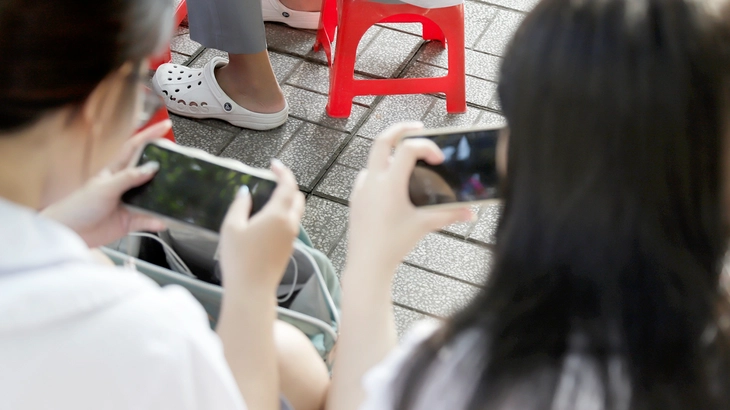
Students using phones in Ho Chi Minh City - Photo: NHU HUNG
Amid debate over whether students should use cell phones at school, many countries have adopted bans or strict controls, with initial positive results.
- The Netherlands has officially banned students from using phones in class, including during recess, since January 2024. According to a survey published in early July 2025 by Digital Futures for Children and cited by The Guardian, 75% of schools reported that students were more focused, 59% said the social environment was more positive, and 28% saw a clear improvement in academic performance. Some schools also said that bullying had decreased thanks to the reduction in the time students spent interacting online.
- In New Zealand, from April 30, 2024, all primary and secondary school students must keep their phones in lockers or at home. According to Phonelocker.com, after a year of implementation, most schools reported that students were more engaged, teachers had easier control of the class, and behavioral problems were reduced.
- Brazil passed a federal law in early 2025 that prohibits students from using phones in classrooms and school hallways, except for medical or academic reasons approved by teachers. According to an article in AP in February 2025, each state had its own regulations, causing a lack of uniformity. Now phones are required to be placed in lockers at the beginning of the school day.
- Finland will implement a law restricting cell phones starting August 1. Under new regulations passed by parliament in April, students are only allowed to use cell phones with teacher permission or in case of emergency.
- In Scotland, many local education boards have issued regulations from May 2025 requiring students to turn off and keep their phones in magnetically locked bags during the school day. According to The Scottish Sun newspaper published in May 2025, this measure helps reduce conflicts between teachers and students, while improving school safety.
- Estonia does not ban phones but encourages their integration into learning activities. According to an article on the LSE Blogs page in October 2024, schools have the right to self-regulate and consider phones as a tool to support students' access to digital technology, as long as they are controlled.
According to UNESCO, by the end of 2024, at least 79 education systems around the world (equivalent to 40%) had enacted policies to restrict or ban phones in schools, Hindustan Times cited in July 2025. Although the approaches are different, the common point is the goal of creating a more focused and healthy learning environment for students.
Source: https://tuoitre.vn/cam-hoc-sinh-dung-dien-thoai-trong-truong-can-lam-ngay-20250710234333511.htm




![[Photo] General Secretary To Lam receives the Director of the Academy of Public Administration and National Economy under the President of the Russian Federation](/_next/image?url=https%3A%2F%2Fvphoto.vietnam.vn%2Fthumb%2F1200x675%2Fvietnam%2Fresource%2FIMAGE%2F2025%2F12%2F08%2F1765200203892_a1-bnd-0933-4198-jpg.webp&w=3840&q=75)







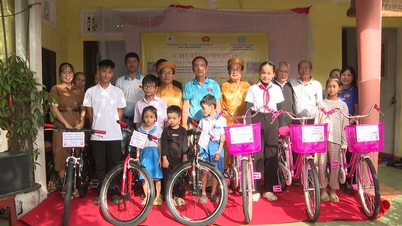










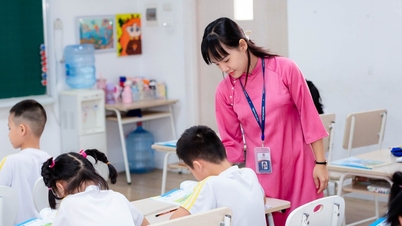



















































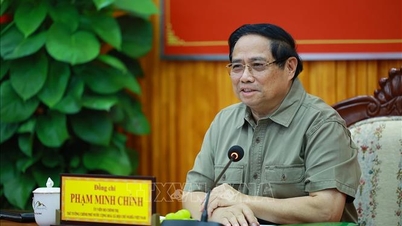



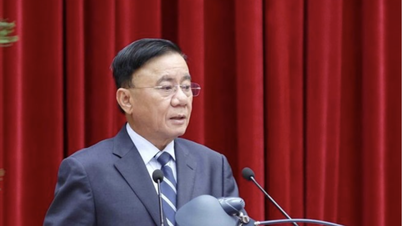


































Comment (0)